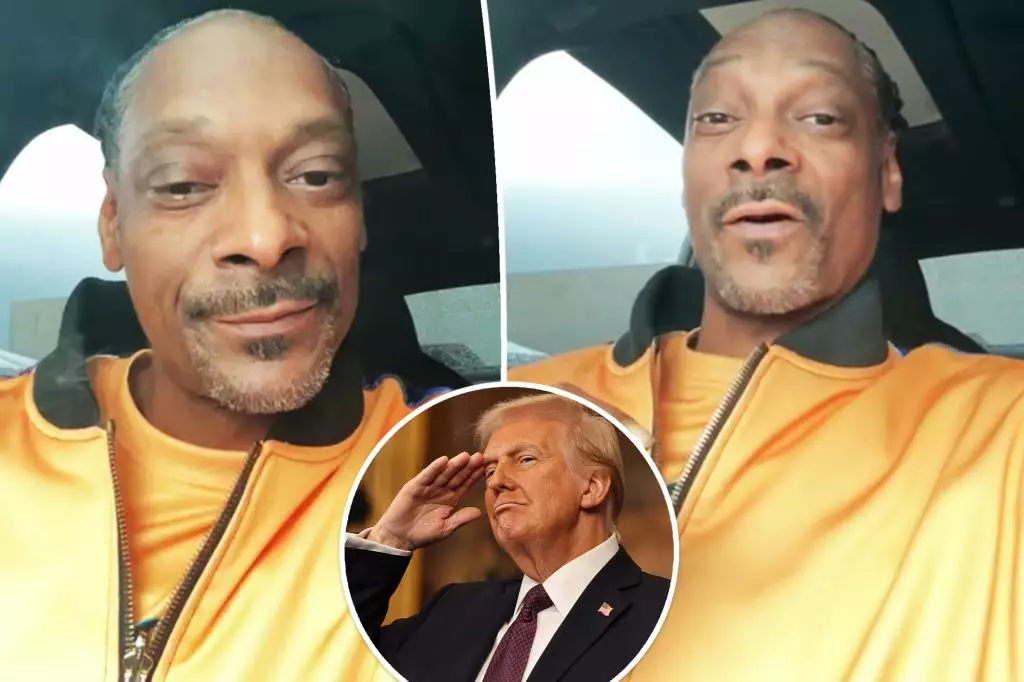Recently, Snoop Dogg found himself at the center of controversy after his performance at President Trump’s inaugural Crypto Ball. In a world where artists are often scrutinized for their decisions, Snoop’s choice to participate in a Trump event generated polarized responses from fans and critics alike. Addressing the backlash via an Instagram video, he encouraged critics to focus on their own lives rather than judge his choices. His message was steeped in his fundamental belief in love over hate, a beacon of his long-standing artistic persona.
The rapper’s comments highlight a crucial aspect of his outlook on community and personal responsibility. By stating, “We gotta learn how to pick each other up rather than put each other down,” Snoop calls for a reassessment of how individuals, especially within the Black community, interact with one another. His recognition of a tendency to tear each other down serves as a reflection on societal pressures that often pit members against each other, contrasting it with the potential strength found in unity. It underscores a desire for growth and collective upliftment rather than perpetuating cycles of negativity.
Snoop Dogg’s extensive social media following, which includes over 88 million Instagram followers, showcases the magnitude of his influence. However, the immediate consequence of performing at the Crypto Ball resulted in a loss of over 570,000 followers on Instagram and thousands more on X. This illustrates a dichotomy within celebrity culture, where public figures face swift and often severe backlash for their affiliations or choices. Critics labeled him a “sellout,” yet it brings to light a critical discussion about the expectations placed on artists, particularly those from marginalized communities, regarding their political affiliations or public stances.
Critics noted a marked change in Snoop’s attitude toward President Trump over the years. His previous remarks, which were sharply critical of Trump’s supporters, have transformed since Trump pardoned Michael “Harry O” Harris, a significant figure in Snoop’s past. This shift reflects how personal experiences can reshape opinions, revealing Snoop’s complexity and capacity for change. His statement, “Donald Trump? He ain’t done nothing wrong to me,” is a powerful reminder that personal narratives often influence public perceptions of political figures.
Despite the mixed reactions to his recent performance, Snoop Dogg’s resilience shines through. He embodies a larger narrative of how celebrities navigate public approval and criticism while trying to maintain their authenticity. The support he received alongside the criticism emphasizes a space where fans can both agree and disagree, showcasing the intricate relationship between artists and their audiences. In recounting his journey, Snoop encourages a dialogue that amplifies understanding rather than division—an invaluable insight in today’s complex social media landscape. His call for love over hate serves as a poignant reminder of the challenges faced by artists in the public eye, urging everyone to embrace their individuality while also supporting one another.

Leave a Reply